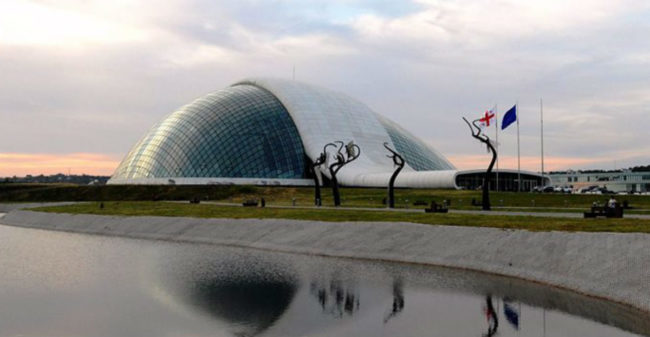

 Georgia’s government is planning sweeping changes to the country’s constitution. According to their proposals the amendments would change the way the president is elected and deprive him of certain powers, define marriage as a ‘union between a man and a woman’, abolish single-member voting constituencies, and ‘guarantee the social rights of its citizens’.
Georgia’s government is planning sweeping changes to the country’s constitution. According to their proposals the amendments would change the way the president is elected and deprive him of certain powers, define marriage as a ‘union between a man and a woman’, abolish single-member voting constituencies, and ‘guarantee the social rights of its citizens’.
The ruling Georgian Dream (GD) party has started finalising the long-intended changes to the constitution, as they hold the absolute majority in parliament necessary to pass any law without the opposition’s consent.
Shift to a parliamentary system
Within the State Constitutional Commission (SCC), which was created in December 2016, ruling and opposition parties, rights organisations, and independent experts have been debating a shift from semi-parliamentary rule to a wholly parliamentary system of government.
GD leaders argue that as Georgia strives to entrench the model of a parliamentary republic, the president’s powers should be restricted, and the way he is elected should be changed. Additionally, the president would be deprived of his powers to call referenda and would require the prime minister’s consent to veto laws.
This has put the ruling party at odds with civil society organisations, opposition parties, and the president himself, who see the presidency as a counterweight to GD’s constitutional majority. President Giorgi Margvelashvili, unsatisfied with this idea, refused to join the SCC.
According to the draft amendments, the entirety of which is yet to be publicly released, the president will be chosen by an election board consisting of 300 voters. This would include the 150 members of parliament; 13 selected by the governments of each of the autonomous republics of Abkhazia and Adjara; 34 elected by Tbilisi’s local government; and a total of 90 appointed by other local self-government bodies.
Parliament would be still located in Kutaisi, despite talk of moving it back to Tbilisi, the minimum age for becoming an MP would rise from 21 to 25, while the minimum age for becoming president would be 45.
The electoral code
Georgia has a single chamber parliament, consisting of 150 members, 77 of which are elected through a proportional system of party lists and 73 through single-member electoral constituencies. This was seen as ‘unfair’ by several parties and civil rights groups, arguing that despite the fact that less than a half of the population voted for Georgian Dream, they still enjoy a constitutional majority because of the single-member constituencies.
The new constitution, however, would abolish these and rely solely on proportional voting to allocate seats.
If the previous parliament had adopted this model, Georgian Dream would have won only 103 seats instead of 113, the United National Movement would have taken 40 instead of 27, and the Alliance of Patriots seven instead of five.
However, the shift will mean that each district will no longer have its own representative in parliament.
Definition of a marriage
One of the most controversial points of the constitution is the definition of marriage. The current constitution reads that ‘marriage shall be based upon equality of rights and free will of spouses’, but doesn’t specify the gender of spouses. The draft amendments explicitly defines marriage as a union between a woman and a man.
Eleven organisations issued a joint statement on 10 April in response to the draft amendments, claiming that it is important to add that ‘other forms of co-living are to be regulated by the law’ to the amendment, leaving open the possibility of same-sex civil partnerships.
The government has been discussing constitutional amendments to outlaw same-sex marriage for several years; this despite same-sex marriage already being expressly forbidden under Georgian law.
(Read also: Georgian rights groups back civil partnerships for same-sex couples]
Social Rights
Another proposed change is a postscript in the constitution which would guarantee that ‘Georgia is a welfare state’. This means that the country should have a social system whereby the state assumes primary responsibility for the welfare of its citizens, such as in matters of health care, education, employment, and social security.
The current constitution states that Georgia is a ‘social and fair’ state, but does not mention, among other rights, social fairness, equality, health, and social protection.
According to the amendments, the state would promote the ‘equal participation of women and men in public and political life’.
While it is clear that including these points in the constitution would not guarantee a sudden increase in living conditions of Georgia’s most vulnerable, it may indicate a will to do so.
[See also: Georgian politics – all circuses, without the bread]






